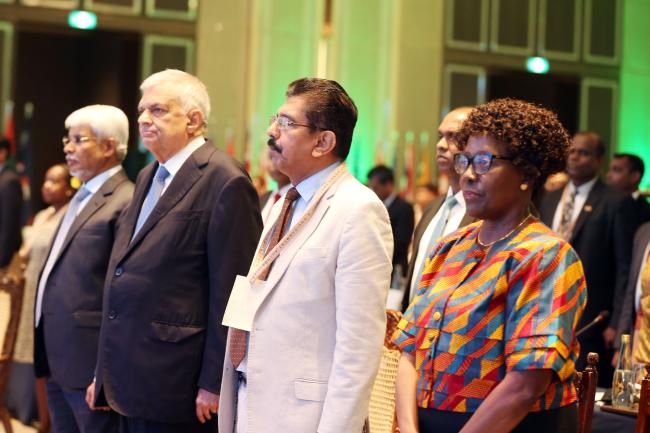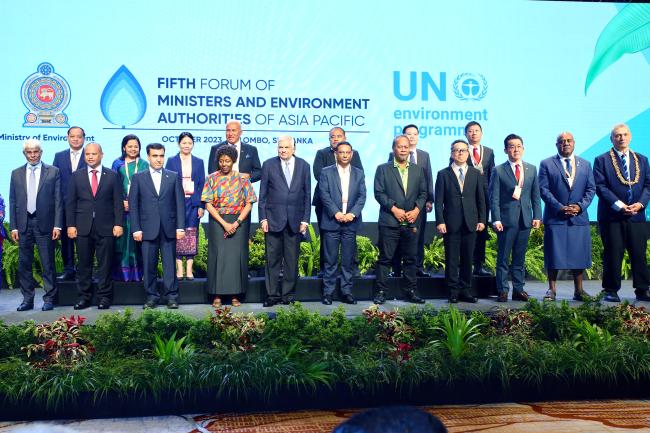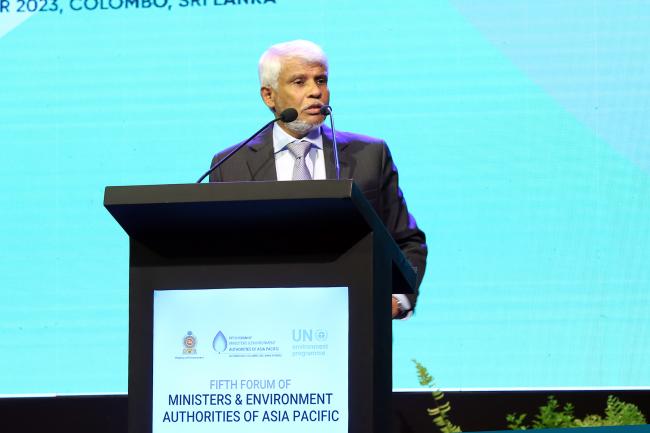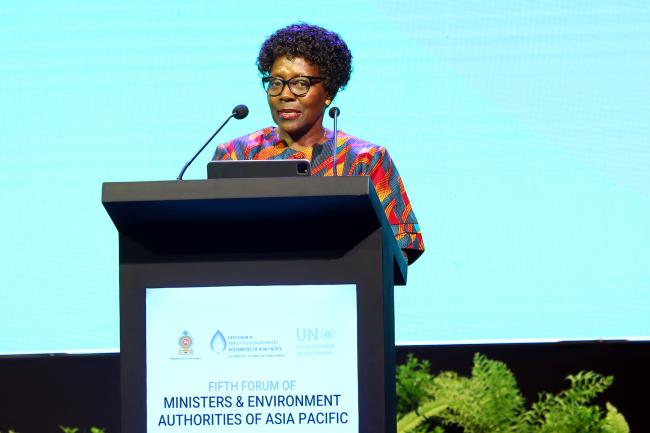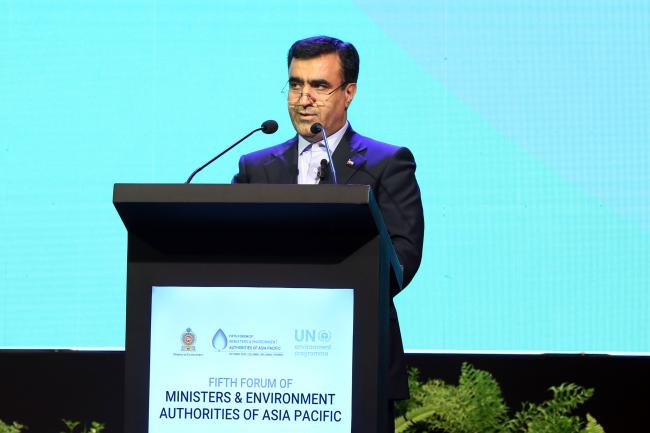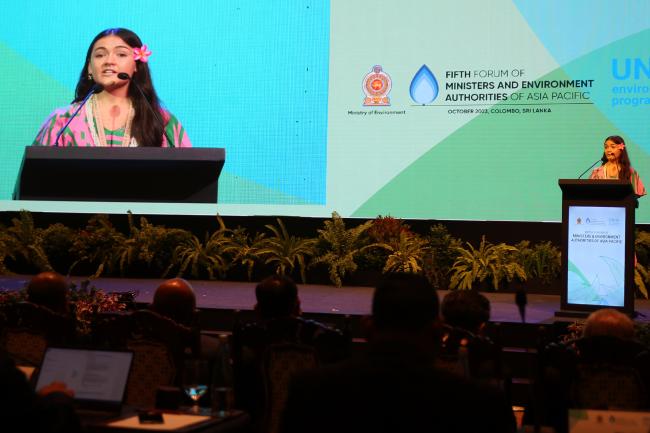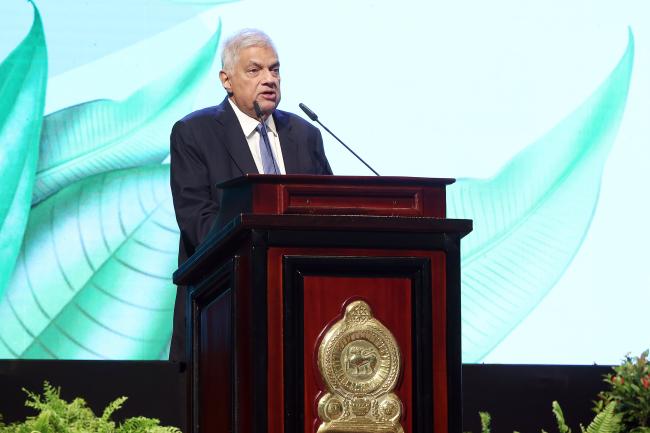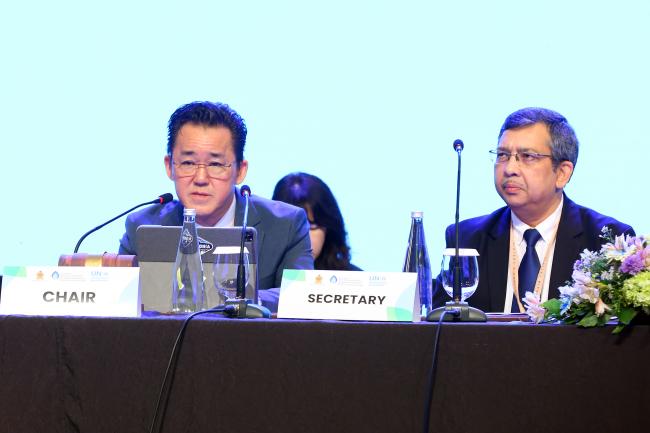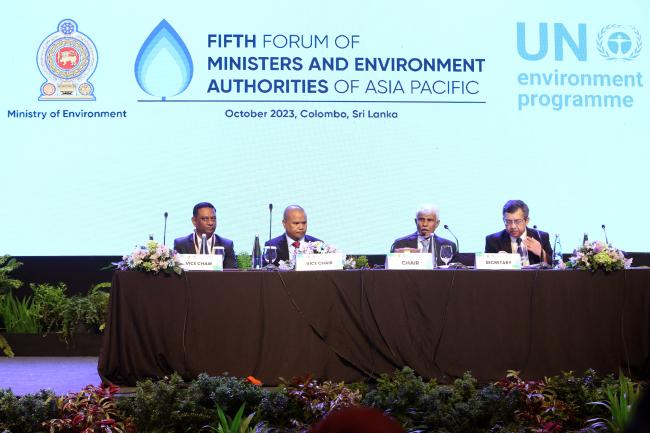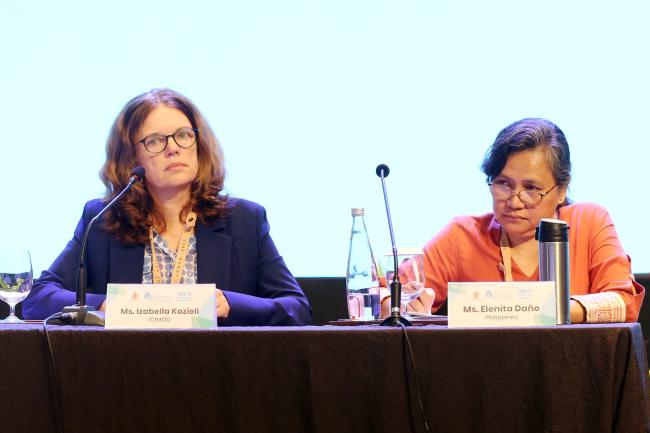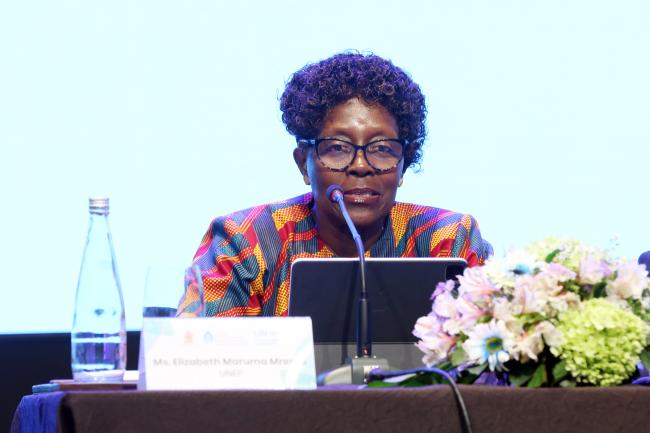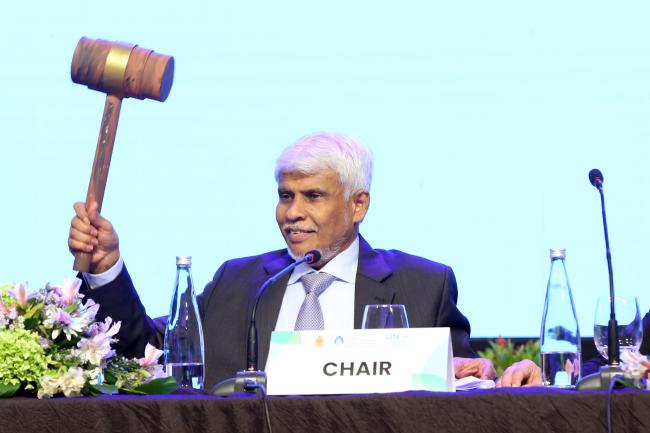Ministerial Segment
The intricately interrelated triple planetary crisis of climate change, biodiversity loss, and pollution has created a complex web of challenges, often with severe multiplier effects. This interplay highlights the urgency of addressing environmental crises collectively and holistically, and demands collaborative and cooperative solutions. The Asia Pacific Forum, by gathering diverse countries with unique environmental challenges, fostered a spirit of collaboration to address the crisis in the region.
Opening Session
The Ministerial Segment opened with a cultural and dance performance.
Following this, Naseer Ahamed, Minister of Environment, Sri Lanka, stressed the urgency of transformative actions to address global environmental issues. He called for emergency funding prioritizing climate-vulnerable nations and supported the concept of a Biosphere Reserve Bank as a green-focused multilateral development bank. Ahamed was then elected Chair of the meeting.
In a video message, Leila Benali, Minister of Energy Transition and Sustainable Development, Morocco, and President of the sixth session of the UN Environment Assembly (UNEA-6), underscored the vital role of regional voices and expressed optimism for an ambitious declaration focusing on low-interest finance and triangular partnerships.
Elizabeth Maruma Mrema, Deputy Executive Director, UN Environment Programme (UNEP), emphasized that no single country or region can tackle the challenges and weight of the triple planetary crisis alone, and encouraged coordinated, rather than siloed, actions.
Sitiveni Rabuka, Prime Minister, Fiji, in a video message, underscored the need to address greenhouse gas emissions and solid waste production as a priority for mitigating negative spillover effects that hinder progress on the Sustainable Development Goals (SDGs) in the Pacific.
Ali Salajegheh, Vice President, Islamic Republic of Iran, pointed to the importance of both multilateral- and community-level initiatives in fostering comprehensive environmental protection and management.
On behalf of Children and Youth Major Group, Āniva Clarke, Samoa, lamented that “no child born today gets to drink clean water, breathe clean air, or eat food that is not contaminated.” She called for a UN resolution on a clean and healthy environment for children and youth.
President Ranil Wickremesinghe, Sri Lanka, called for Asia Pacific to unite to address these challenges, including through a proposed Climate Justice Forum to ensure that the most vulnerable are protected. He added that countries unwilling to act on climate are “guilty of committing genocide.”
Underlining the need for concerted environmental action, Lim Sang-jun, Vice Minister of Environment, Republic of Korea, said mankind has searched the galaxy far and wide for an inhabitable universe, yet concluded that Earth is still the only planet safe for humans.
Multistakeholder Dialogue on Multilateral Actions
This session was introduced through a short video advocating for urgent action to turn the tide on biodiversity loss and climate change, voiced by the actor Jason Momoa and produced by the UNEP Secretariat.
Delegates, in their interventions, noted the key role of regional multilateral actions in bridging financial and action gaps. Several countries presented their national policies and actions to tackle the crisis, with some noting that multilateral actions foster a sense of shared responsibility and commitment among states.
Multistakeholder Dialogue on Cooperation
This dialogue focused on the role of cooperation in facilitating regional solutions, and the alignment of policies and goals.
Steven Victor, Minister of Agriculture, Fisheries, and the Environment, Palau, called on regional leaders to “show up” at UNEA-6, and to be bold in bringing action to the ground beyond making ambitious commitments.
Yutaka Matsuzawa, Vice-Minister for Global Environmental Affairs, Japan, encouraged Asia-Pacific countries to promote the establishment of a legally binding instrument on plastic pollution.
Izabella Koziell, Deputy Director General, International Centre for Integrated Mountain Development (ICIMOD), reported on efforts with the Hindu Kush Himalaya to establish a regional institutional mechanism to protect the fragile ecosystem.
Elenita “Neth” Daño, Asia Director, Action Group on Erosion, Technology and Concentration (ETC Group), called on the UN and governments to combat the shrinking of democratic space for civil society. She urged the Forum to facilitate, not hinder, coordination and engagement between civil society and science-policy-business discussions.
Member states discussed the opportunities for synergies in addressing the triple planetary crisis through integrated approaches such as Nature-based Solutions (NbS), which offer co-benefits to tackle the three problem areas. Several noted alignment of policies in this regard.
Adoption of the Forum Outcomes and Closing
Moira Faletutulu, Samoa, and Vice Chair of the Senior Official’s Meeting and Chair Ahamad presented the Chairs’ Summaries of the Fifth Forum of Ministers and Environment Authorities of Asia Pacific. Delegates took note of the summaries.
In closing remarks, UNEP Deputy Executive Director Mrema lauded the productive deliberations over the duration of the Forum, underlining that global multilateral action is the only hope to address the triple planetary crisis.
Chair Ahamad gaveled the meeting to a close at 6:48 pm.
All ENB photos are free to use with attribution. For the 5th Forum of Ministers and Environment Authorities of Asia Pacific (5FMAP), please use: Photo by IISD/ENB | Franz Dejon.
To receive free coverage of global environmental events delivered to your inbox, subscribe to the ENB Update newsletter.


